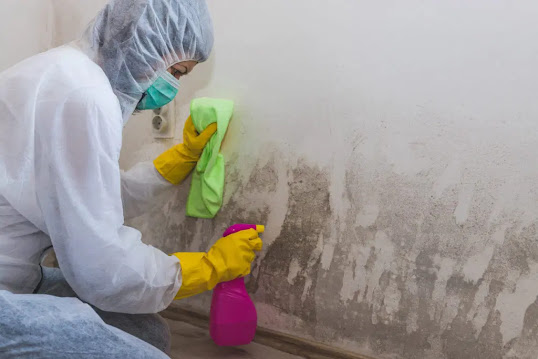What Are the Risks of Delaying Water Damage Mould Removal?
Water damage
is a common issue faced by homeowners, often leading to serious problems like
mould growth. While some may think that a bit of water damage isn't a big deal,
the longer it's left untreated, the higher the risks become. One of the most
dangerous consequences of delaying Water Damage Mould Removal is the potential for
mould to spread throughout your home. Mould thrives in damp, humid conditions,
and once it begins to grow, it can quickly infiltrate walls, floors, and even
HVAC systems, affecting the entire property.
1. Health Risks
The most
immediate risk of delaying Water Damage Mould Removal is the potential health
problems it can cause. Mould spores are known to trigger allergies and
respiratory issues such as coughing, sneezing, and wheezing. For those with
asthma, pre-existing lung conditions, or weakened immune systems, mould
exposure can lead to serious complications. Prolonged exposure to mould can
even cause chronic health conditions, such as mould toxicity or fungal
infections. By removing the mould early, homeowners can mitigate these health
risks and create a safer living environment for everyone.
2. Structural
Damage to Your Home
Mould doesn’t
just affect the air quality in your home; it can also cause significant
structural damage. Once mould begins to grow on wood, drywall, and other
building materials, it starts to eat away at them. Over time, this can weaken
the structure of your home, leading to costly repairs. The longer you wait to
address water damage and mould, the more extensive the damage can become. In
severe cases, sections of walls or floors may need to be replaced entirely.
Prompt Water
Damage Mould Removal helps preserve the integrity of your home
and saves you from potentially expensive repairs down the line.
3. Increased
Cost of Restoration
Another risk
of delaying Water Damage Mould Removal is the increased cost of restoration. When
mould is left untreated, it spreads, and the damage becomes more extensive. The
longer the mould has to grow, the harder it is to remove and the more expensive
it will be to clean up. Immediate action can prevent mould from spreading and
reduce the overall cost of restoration. Professional mould removal services can
contain the issue early, using targeted solutions to prevent further
contamination and saving you money in the long run.
4. Odors and
Aesthetic Damage
Mould growth
also leads to unpleasant odors. As it spreads, it releases musty, damp smells
that can permeate your home. These odors can be difficult to remove without
proper Water
Damage Mould Removal. The longer you wait, the harder it will
be to eliminate these smells, and they can make your home feel unwelcoming.
Additionally, mould can stain walls, ceilings, and fabrics, causing aesthetic
damage to your property. If you want to maintain the beauty and comfort of your
home, it's essential to address mould issues as soon as they arise.
5. Reduced
Property Value
Lastly, one
of the most significant risks of delaying Water Damage Mould Removal
is the potential decrease in property value. If mould is discovered during a
home inspection or when trying to sell, it can lower the sale price of your
home significantly. Prospective buyers are often hesitant to purchase a
property with a mould problem, fearing the associated health risks and
potential repairs. Taking care of mould removal promptly not only protects your
health and your home but also helps preserve the value of your property.
Conclusion
Delaying Water Damage Mould Removal can lead to a range of serious consequences, from health risks to structural damage and increased costs. The longer you wait to address the issue, the more difficult and expensive it becomes to fix. Prompt action not only protects your home and your health but also helps maintain the value of your property. If you’ve experienced water damage in your home, it’s crucial to seek professional mould removal services as soon as possible to avoid these risks and ensure the safety and comfort of your living environment.

.webp)


Comments
Post a Comment